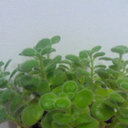Anti-inflammatory effect of acetylharpagide demonstrated by its influence on leukocyte adhesion and transmigration in endothelial cells under controlled shear stress.
Keywords
Abstract
This research was aimed to investigate the anti-inflammatory mechanism of acetylharpagide extracted from Ajuga decumbens Thunb. Human umbilical vein endothelial cells (HUVECs) and human monocytic leukemia cell line THP-1 were employed as experimental materials. The MTT assay (3-(4,5-dimethylthiazol-2-yl)-2, 5-diphenyltetrazolium bromide) was used to determine the safe dose range of acetylharpagide. TNF-α (20 ng/ml) was used to model THP-HUVECs adhesion/transmigration and trypsin was used to model wounding of HUVECs under controlled shear stress of 0.1 Pa and 0.2 Pa (5 h) by Bioflux1000 assays accordingly. Effects of acetylharpagide were dynamically monitored by microscopic time-lapse photography. Acetylharpagide within the concentration of 0-200 μM showed no sign of toxicity to HUVECs and THP-1. Acetylharpagide dose-dependently inhibited THP-1 adhesion to TNF-α activated HUVECs monolayer with an IC50 of 171 μM under static conditions. Acetylharpagide at 200 μM inhibited leukocyte adhesion and transmigration to HUVECs monolayer activated by TNF-α under 0.1 Pa shear stress (P < 0.05). The compound at 200 μM also inhibited HUVECs migration under 0.2 Pa in the wound healing model compared with the control group (P < 0.05). In conclusion, the anti-inflammatory effects of acetylharpagide are possibly related to inhibiting leukocytes adhesion and transmigration. Moreover, acetylharpagide also inhibits the endothelial cells migration notably, which might be the additional action responsible for its effect in reliving-chronic inflammatory progress.


